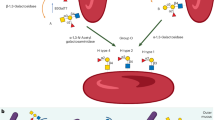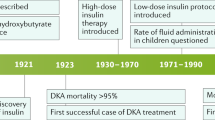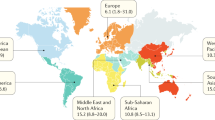Abstract
IN connexion with our investigations of the aetiological factors responsible for the high incidence of neonatal jaundice among Chinese infants in Taiwan, we have measured the concentrations of erythrocyte acid phosphomonoesterase in normal and Chinese newborn infants and those deficient in glucose-6-phosphate dehydrogenase (G-6-PD). Our experiments on the acid phosphomonoesterase enzyme were prompted by the studies of Oski et al.1 and Choremis et al.2. In the results reported by Oski et al.1 there was a difference between the acid phosphomonoesterase activities in erythrocytes of Negroes deficient in G-6-PD and those of Caucasians deficient in the enzyme. Specifically, Oski et al.1 found that the acid phosphomonoesterase activities of Caucasians deficient in G-6-PD were reduced whereas those of Negroes deficient in G-6-PD were equal to those of normal Negroes and Caucasians. Oski et al.1 were interested in comparing the biochemical profiles of Caucasians and Negroes deficient in G-6-PD because of the apparent difference in the nature of that defect in the two groups. For example, it has been suggested1 that Negroes deficient in G-6-PD show a less acute haemolysis than that experienced by deficient Caucasians3 after eating broad beans (Vicia faba). It has also been reported that not all individuals from the same ethnic group who are deficient in G-6-PD are equally susceptible to favism2–4 nor do they experience equal degrees of severity of neonatal jaundice5. In these circumstances it is reasonable to seek differences among other enzyme systems the normal operations of which influence the levels of the intermediary metabolites involved as precursors or products of G-6-PD action. Acid phosphomonoesterase is an enzyme of this type.
This is a preview of subscription content, access via your institution
Access options
Subscribe to this journal
Receive 51 print issues and online access
$199.00 per year
only $3.90 per issue
Buy this article
- Purchase on Springer Link
- Instant access to full article PDF
Prices may be subject to local taxes which are calculated during checkout
Similar content being viewed by others
References
Oski, F. A., Shahidi, N. T., and Diamond, L. K., Science, 193, 409 (1963).
Choremis, C., Kattamis, Chr., and Zannon-Mariolea, L., Lancet, i, 108 (1964).
Tarlov, A. R., Brewer, G. J., Carson, P. E., and Alving, A. S., Arch. Intern. Med., 109, 209 (1962).
Zinkham, W. H., Lenhard, jun., R. E., and Childs, B., Bull. Johns Hopkins Hosp., 102, 169 (1958).
Fessas, Ph., Doxiadis, S. A., and Valaes, T., Brit. Med. J., ii, 1359 (1962).
Motulsky, A. G., and Kraut-Campbell, J. M., Genetic Polymorphism and Geographical Variation in Disease (edit. by Blumberg, B. S.), 159 (1962).
King, E. J., Wood, E. J., and Delory, G. E., Biochem. J., 39, xxiv (1945).
Author information
Authors and Affiliations
Rights and permissions
About this article
Cite this article
LU, TC., WEI, H. & BLACKWELL, R. Erythrocyte Acid Phosphomonoesterase Activity in Newly Born Chinese deficient in Glucose-6-phosphate Dehydrogenase. Nature 213, 707–708 (1967). https://doi.org/10.1038/213707a0
Issue Date:
DOI: https://doi.org/10.1038/213707a0
Comments
By submitting a comment you agree to abide by our Terms and Community Guidelines. If you find something abusive or that does not comply with our terms or guidelines please flag it as inappropriate.



